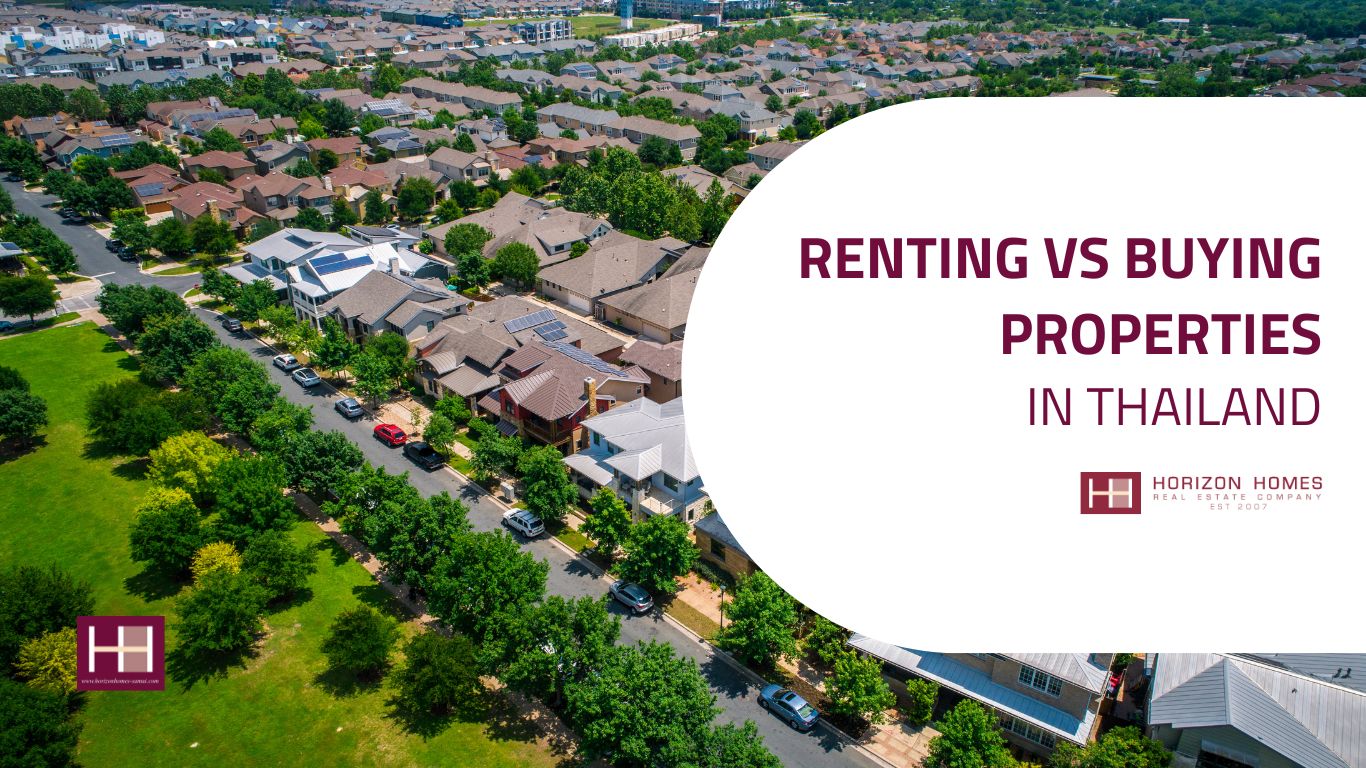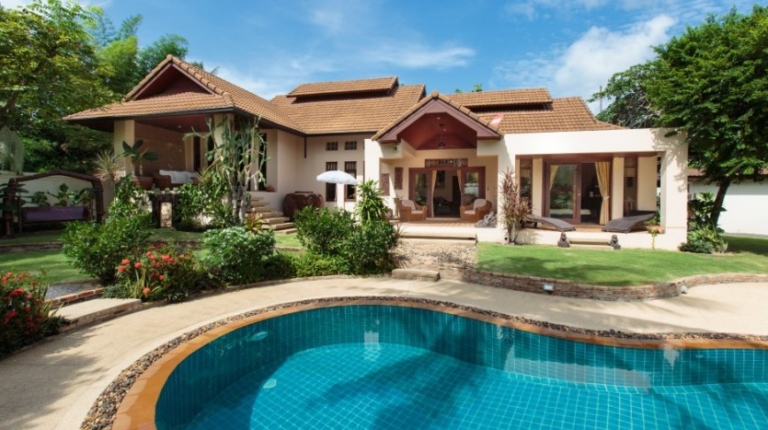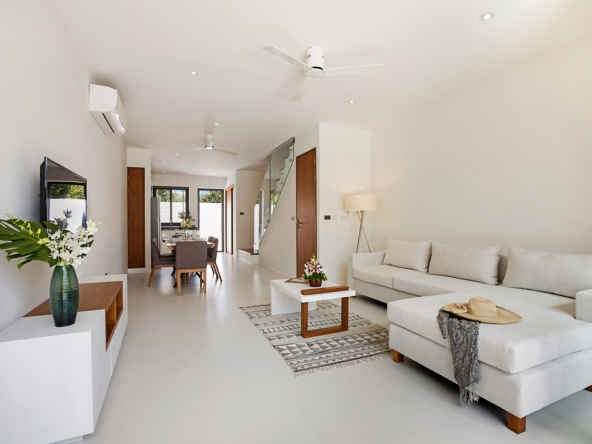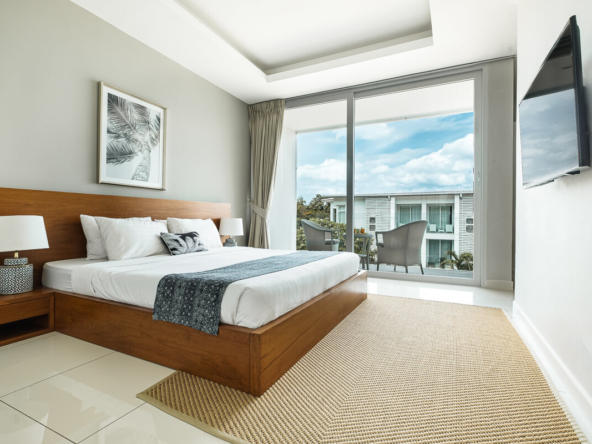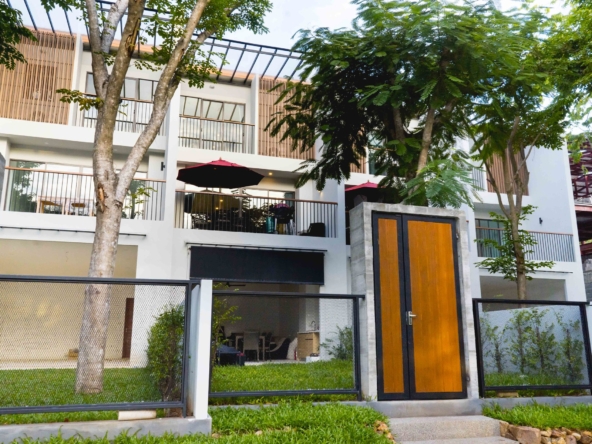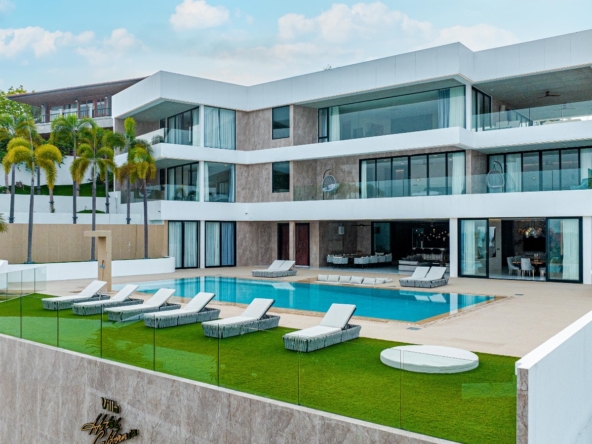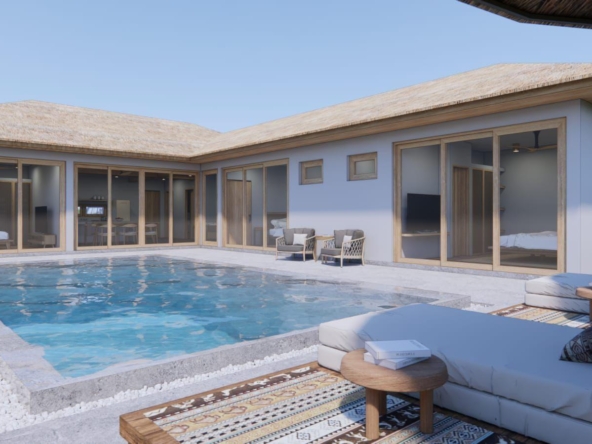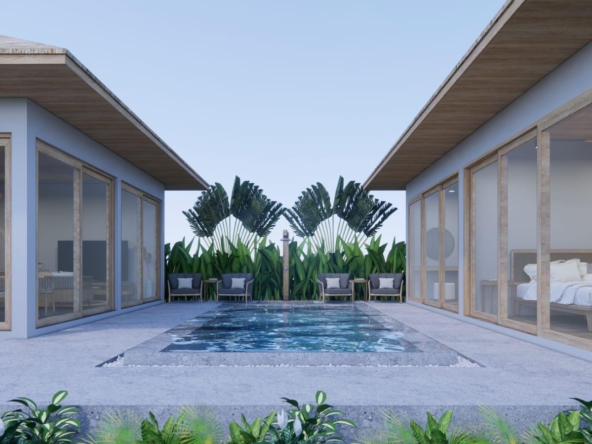Deciding whether to rent or buy property in Thailand is a big decision that depends on your goals, lifestyle, and financial situation. Thailand offers an enticing mix of affordability, tropical scenery, and a warm culture that draws expats, retirees, and investors alike. Both renting and buying have their unique advantages and challenges, and each option suits different types of buyers.
Let’s dive into the pros and cons of each to help you find the best path for your Thai property journey.
Renting Property in Thailand
Renting is an attractive option for many newcomers, digital nomads, and those who prefer flexibility. Thailand’s rental market offers a wide range of options, from luxury condos in bustling Bangkok to serene beachside homes on islands like Phuket or Koh Samui.
Pros of Renting
- Ultimate Flexibility: Renting allows you to move freely between cities and neighborhoods. Once your lease is up, you’re free to explore other regions without the hassle of selling or managing property.
- Low Upfront Costs: You avoid hefty down payments and fees, making renting an easier financial commitment. A security deposit and a couple of months’ rent are typically all you need to get started.
- Maintenance-Free Living: In most cases, landlords handle maintenance, so if something breaks, it’s not your responsibility. This saves you both time and money.
- Predictable Monthly Expenses: With a set rental fee, you won’t face the unexpected costs that property owners do, which can make budgeting easier.
Cons of Renting
- No Equity Building: Renting means paying for temporary accommodation, so while you’re enjoying your place, you’re not building any ownership or financial return.
- Potential for Price Increases: Lease renewals can come with price hikes or even an end to your agreement if the landlord decides to sell, leading to uncertainty.
- Limited Customization: Rental agreements usually limit how much you can personalize or remodel, so the property must stay as-is per the owner’s preferences.
Renting provides a worry-free, commitment-light way to live in Thailand, especially if you’re not sure where you want to settle long-term or prefer flexibility.
2 Bed 2 Bath Townhouses For Rent in Choeng Mon – HV0110
- ฿4,000/per night
- Beds: 2
- Baths 2
 yes
yes- Townhouses
2 Bed 3 Bath Townhouses For Rent in North East – HR0054
- ฿4,000/per month
- Beds: 2
- Baths 3
 yes
yes- Townhouses
3 Bed 3 Bath Townhouses For Rent in Bophut – HR0053
- ฿4,950/per night
- Beds: 3
- Baths 3
 yes
yes- Townhouses
Buying Property in Thailand
Buying property in Thailand can be ideal for those ready to settle down or looking to invest. While the process can be complex, particularly for foreign buyers, Thailand offers attractive prices and a high quality of life.
Pros of Buying
- Long-Term Investment: Property in Thailand is generally affordable compared to other countries, and it can appreciate over time, giving you potential returns on investment.
- Security and Stability: Owning your own home offers the stability of a permanent residence without the need to negotiate leases or deal with sudden relocations.
- Freedom to Customize: When you own property, you’re free to renovate and decorate as you please, creating a home that reflects your style and needs.
- Potential for Rental Income: If your property is in a desirable location, renting it out—either short-term or long-term—can be a profitable way to generate income.
Cons of Buying
- Higher Initial Costs: Buying involves significant upfront expenses like down payments, taxes, and legal fees, as well as ongoing costs for maintenance and repairs.
- Responsibility for Maintenance: As a property owner, you’ll need to handle repairs and upkeep, which can be challenging, especially in Thailand’s humid climate.
- Commitment Required: Selling property if plans change can take time, which means less flexibility compared to renting.
- Legal Limitations for Foreigners: Foreign ownership is limited for land and standalone homes. However, foreigners can buy condominiums outright, and long-term leases offer an alternative for other property types.
Buying property can be a rewarding investment, but it requires thorough planning, especially for foreigners navigating Thai ownership laws. Ownership provides stability and the chance to build equity, but it comes with more responsibility.
Renting vs Buying: Key Considerations
- Length of Stay: For shorter stays or uncertain plans, renting offers flexibility. If you’re planning to stay for the long haul, buying may be more cost-effective in the long run.
- Financial Situation: If you have the funds to cover a down payment and ongoing maintenance, buying could be a worthwhile investment. However, if you’d rather keep your capital liquid, renting might be a better option.
- Lifestyle and Flexibility: Renting is ideal if you enjoy the freedom to move around, while buying is better suited to those wanting a stable, customizable home.
- Legal Complexities: Foreigners should understand Thailand’s property laws before purchasing. Condo ownership is the most straightforward option, while land purchases often require long-term leases or setting up a Thai entity.
Considering Horizon Homes for Your Purchase
For those interested in buying property in Thailand, Horizon Homes offers professional services specifically tailored to foreign buyers. Based in Koh Samui, Horizon Homes specializes in helping expatriates find the perfect property, from luxury villas to more affordable options, while providing guidance on Thailand’s legal requirements.
Why Horizon Homes?
- Diverse Property Listings: Horizon Homes offers a wide range of properties, catering to different budgets and preferences.
- Legal Guidance: Their team helps clients navigate the complexities of property ownership, including local regulations and legal requirements.
- Full-Service Experience: Horizon Homes provides personalized support throughout the buying process, from selecting properties to finalizing purchases.
- Property Management: If you plan to rent out your property, Horizon Homes offers property management services, making it easier to earn passive income without handling the day-to-day maintenance.
Choosing Horizon Homes can help streamline the buying process, ensuring that you find a property that aligns with your needs while staying compliant with Thai laws.
Conclusion
Deciding between renting and buying property in Thailand ultimately depends on your lifestyle goals and financial plans. Renting offers unmatched flexibility and convenience, making it ideal for those who crave movement and minimal commitment. It allows you to experience Thailand’s different regions without a hefty financial stake.
On the other hand, buying property provides stability, a potential return on investment, and the joy of creating a home you can personalize. While it comes with added responsibility and legal considerations, property ownership can be a rewarding and profitable decision.
In the end, weigh what matters most: flexibility, control, and budget. Whether you’re drawn to the excitement of Bangkok or the tranquility of Thailand’s islands, the choice you make will help shape your unique experience in this vibrant and beautiful country.

